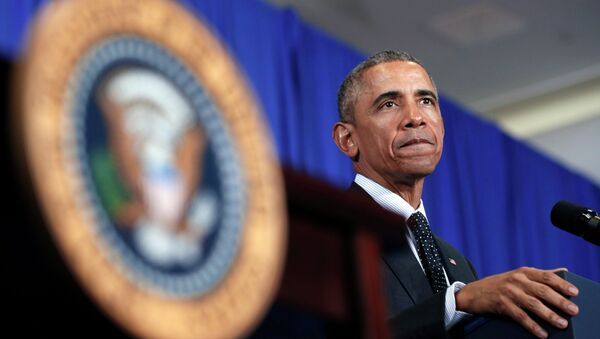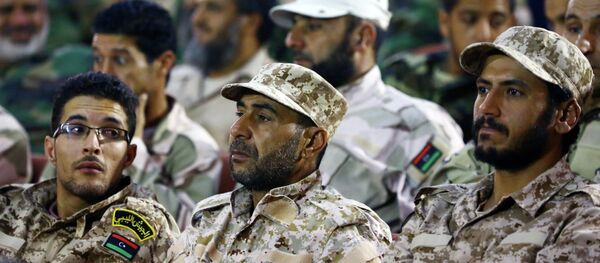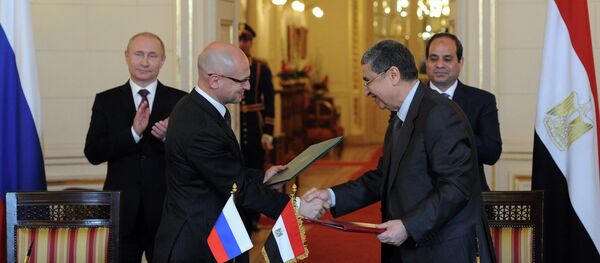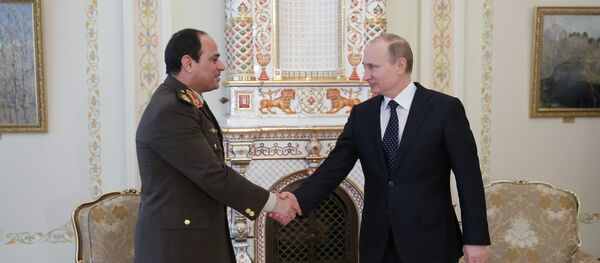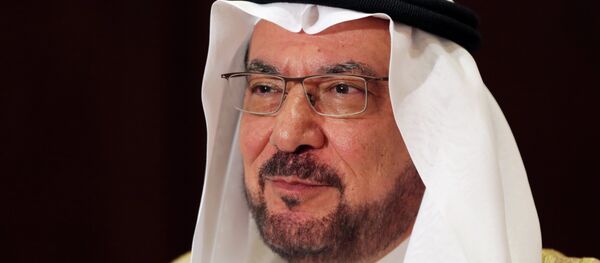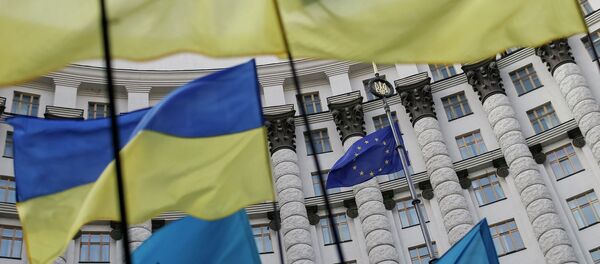As Obama's foreign policy falters, even former US allies are turning toward Russia for support. In February, high-profile visits to Moscow were made by Libya's prime minister and Yemen's ruling coalition. On February 10, Putin made a visit to Egypt which has been labelled as historic by analysts, and led to multiple high-level visits since.
However, the leaders are not only seeking access to Russia's historically strong military industry, but also its economic cooperation and political clout at the United Nations Security Council as they realize that dealing with the United States is a dead end. There are five main reasons why post-Arab Spring states are yearning for Russia's support.
1. The US Only Provides Weapons When it Serves Its Doctrine
"The United States and Britain have been supporting armed groups while at the same time denying weapons to the Libyan army," the country's internationally-recognized Prime Minister Abdullah al-Thani told Sputnik on Tuesday.
Al-Thani, previously announced that Libya hopes for a military cooperation with Russia, in both weapons supplies and training, during a press conference at the Rossiya Segodnya press center in Moscow on February 5.
2. Infrastructure Projects With the West Mean IMF Debt Traps
"We have big plans for electricity generation and the construction of railroads. We had contracts with Russian companies for all of these things. We welcome the return of Russian companies to Libya because they are reliable and perform quality work," Al-Thani told Sputnik. "We welcome them. We are, of course, ready to continue work on contracts signed in the past."
In Egypt, along with a trade mission which Russian Railways is joining in March, Egypt seeks nuclear power, which Russia's Rosatom is willing to provide.
"We are talking about using Russian technologies to build a four-bloc nuclear power plant, 1,200 megawatts each," head of Rosatom Sergei Kirienko announced on February 12.
3. The US Cannot Solve the Problems Which Caused the 2011 Protests
"We made an inquiry for the project's parameters. This is a very modern granary which can store up to seven or eight million tons. This granary could be made into an interregional center," Russia's Minister of Agriculture Nikolai Fedorov announced on February 10. "Compared to 2013, we doubled shipments by almost two times, to over four million tons, or up to 40 percent of Egypt's import."
4. The US Relationship With Gulf Monarchies Makes Conflict Resolution Impossible
On Wednesday, a group of Yemeni political groups including Ansar Allah, the General People's Congress and the Socialist Party arrived in Moscow following an invitation from State Duma deputies. The Yemenis are offering Russia the chance to develop Yemeni oil deposits in exchange for recognition, which would help the Houthis' escalating conflict with Saudi Arabia.
5. America is a Dead End for People Who Seek Change
Meanwhile in Syria, where the United States has decided to arm and train "moderate" Syrian rebels to fight ISIL, John Kerry has been building a case for attacking Assad.
"It seems to me that if Assad were to attack them or somebody attacks them in the course of the time that they're going after ISIL, that's part of the fight," US Secretary of State John Kerry said at a budget authorization hearing at the US Senate Foreign Affairs Committee on February 24. Stopping short of saying that Assad would have to be attacked, Kerry added, "They have to be authorized — the authorization is such that defending those who are engaged in the fight of ISIL is an important part of defeating ISIL."
However, just as with Libya, the United States does not have a role for Syria after its government is overthrown, other than destroying its economic relationship with Russia and its plans for a pipeline to the Mediterranean with Iran.
